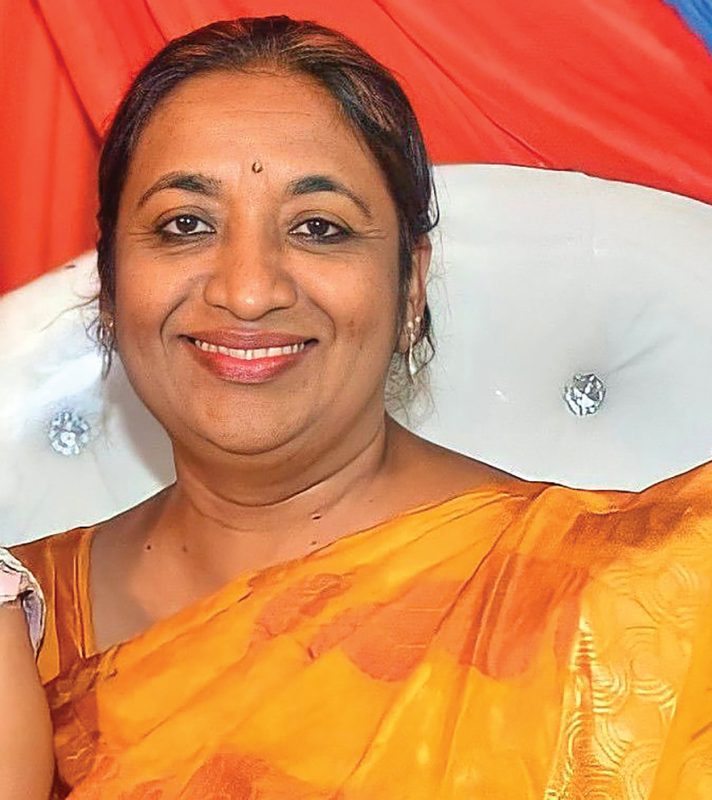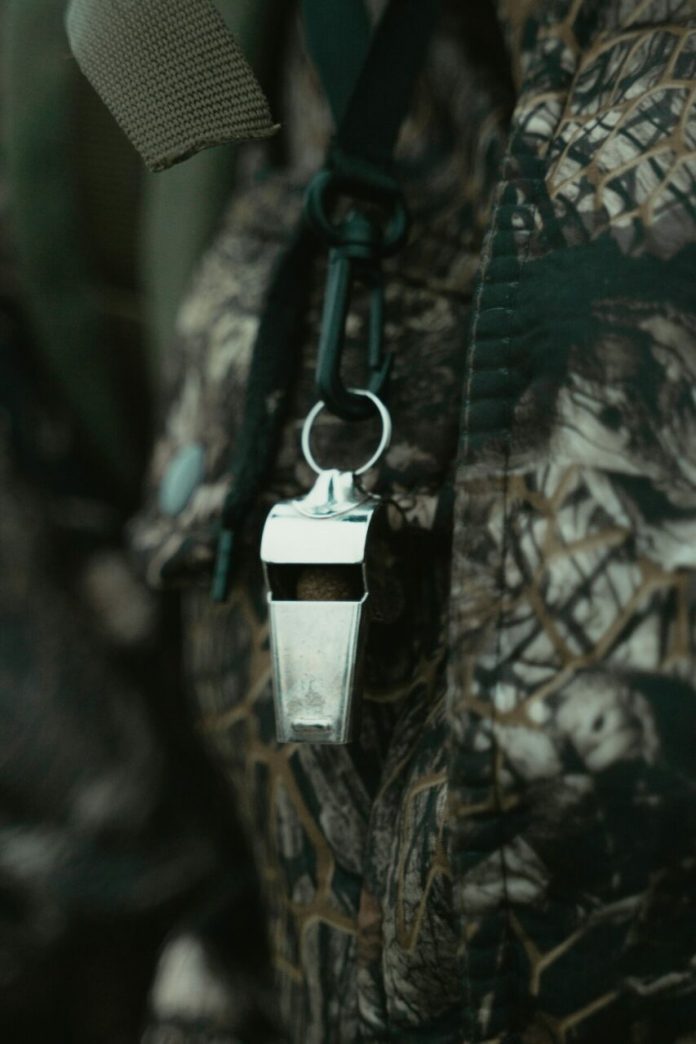The outcome of Babita Deokaran’s murder trial lies squarely in the hands of politicians who ordered the hit, according to Aristeidis Danikas, who says the judiciary system is but a weapon formed against the whistleblowers.
Danikas, a whistleblower who lived to tell the tale, believes prosecuting the hitmen is not enough, but is essential for the mastermind to be brought to book to account for the crime.
However, it seems impossible, the country might never know who ordered the hit, says Danikas, noting that with the 2024 general elections fast approaching, he doubts the politicians would reveal the truth.

“It takes political will to resolve such a case. We do not want accountability for only the people who pulled the trigger [hired guns], but for the ones who gave the order. I have serious doubts that the politicians will give up one of their own if that’s the case, especially with elections around the corner,” he shares.
Danikas has no faith in the justice system, he says, adding that there have been many people who suffered at the hands of the law after having blown the whistle.
“Regrettably, I have little faith in the current justice system in South Africa. There are many incidences of South African whistleblowers who come forward to report wrongdoing and corruption at the place of their work, and as a result suffer from retaliation, persecution, and even losing their lives.
“It is a common practice in South Africa to use the judiciary system as a weapon against honest citizens of consciousness who are willing to speak up and expose corruption at the highest places.
“Regrettably, the very same institutions that are supposed to guard and protect our democracy are compromised, and as a result weaponised or can fabricate an interpretation of the law against whistleblowers.
“My slogan is ‘South Africa stop killing your whistleblowers’, the message is clear.”
South Africa failed Deokaran
Speaking about how the state could have dealt with the damning evidence that Deokaran unveiled, Danikas shared with Sunday World a list of methods that would have helped protect the slain whistleblower.
He says had the state utilised the methods, Deokaran would still be alive.
According to Danikas, Deokaran’s case was not handled in secrecy, which further increased her exposure to danger, and notes that the state should have appointed a legal team to advise Deokaran of her rights as a whistleblower and provide a safe environment, as well as physical protection for her and her family.
“In Europe, I was part of an international team of experts that helped design an anonymous tipping reporting mechanism called the EAT project.
“I was the only whistleblower to be utilised in the design and implementation of such a programme in Europe. Had South Africa tried to utilise such a free facility and implement it within its public sector, then Babita Deokaran could have used the EAT project to report her public disclosure, safely, anonymously and without risks.”
Danikas shares that according to the European directive of 2019, it is compulsory for organisations to incorporate three ways in which whistleblowers can report wrongdoing.
The first method is internal disclosure which, according to him, does not always work, “especially in a country where there is unprecedented corruption within the public sector”.
“Regrettably, Babita had only one option at the time and chose to do what I did back in 2004, when I also reported internal corruption. I was fortunate to escape with my life and forced into exile. Babita was not.”
The second method involves disclosing through a partner non-government organisation (NGO) specialising in public disclosures and the protection of whistleblowers. Danikas says the organisation reports its findings to the authorities without endangering the whistleblower. The whistleblower remains completely anonymous.
“The third option is to use an external public disclosure act, as well as an accredited media organisation that is trained to handle whistleblowers as sources. In that case, if the public disclosure does not progress due to corruption within the system, the journalist will write a story and go public with it while protecting its source.”
Danikas explains further: “If South Africa had adopted the methods, I am certain that [Deokaran] would have chosen the second or third option available to her through her work, and her external public disclosure would have been dealt with in secrecy, as well as her identity withheld.
“She would have received protection from retaliation by independent organisations tasked with monitoring and counselling such whistleblowers in danger. The authorities would have been forced to do their job properly.
“Her identity and evidence should have been obtained and screened independently and by different organisations including NGOs that handle corruption of this magnitude. Since it is alleged that a high-ranking politician was involved in corruption, the authorities should have tasked a specialised unit to investigate further and in secrecy.
“The investigators involved and tasked to handle such evidence should have been accountable for leaks and any compromising actions that might have placed the whistleblower at risk, thus exposing her identity.
“Clearly the above were not an option and Babita was assassinated as a result.”
How Danikas survived as a whistleblower
Danikas, a world-recognised whistleblower who exposed the infamous Cato Manor police unit and revealed corruption in the National Prosecuting Authority (NPA), says he considers his case “a textbook case of how not to treat a whistleblower”.
A whistleblower of note who like many others has faced a lot of criticism and by luck garnered support in some instances, Danikas believes that no matter what happens, the truth must be told.
“In 2004, while I was a volunteer for the SAPS in KwaZulu-Natal, I witnessed police members of my unit, the notorious Cato Manor [police], torturing a naked African suspect at the police offices.
“I obtained a secret video via my cellphone and made an internal public disclosure to the highest-ranking officer in charge. Unfortunately, just like Babita later on, I had no safe anonymous reporting mechanisms to utilise nor an effective public disclosure act to protect me as a whistleblower.”
He shares further: “I witnessed and documented various wrongdoings and corruption at the place of work [SAPS] as a volunteer over a period of time, and I tried to make some internal and external disclosures.
“As a result, I had to flee with my wife in 2008 into exile, after recognising the pattern of retaliation and the risks involved. The only safety for me was my dual citizenship that allowed me to go into exile, just like Athol Williams did recently, and escaped death.”
Between 2012 and 2016, Danikas was approached by the authorities to assist with the investigation into the Cato Manor police unit, however, he says he was misled and left exposed to danger after the authorities got what they wanted.
“In 2012-2016, I was approached by South African authorities to assist with the investigation of the Cato Manor [police] unit. The authorities lied to me, and although promised protection, once they received what they wanted from me, [a sworn statement and my evidence], they left me exposed and in danger.
“The case was compromised due to political interference and corruption within the NPA. The media had a key role to play as well, since some journalists were tasked to [mete out] character assassination [against] me.
“I can say that the state was incompetent to protect me, with elements of corruption within, so I managed to protect myself by utilising international NGOs in support of my rights and staying as far as possible from South Africa while still advocating for whistleblowers.
“As a repeated pattern, the state failed to protect Babita and [she] did not have the luxury of escaping to exile.”
Danikas is not backing down on whistleblowing because of the state that favours wrongdoers, he shares, noting that he continues to sing through his Cato Manor Police Death Squad website, where he gets to disclose without facing direct retaliation.
“By going public and making a recent website with my public external disclosure, I can expose the corrupted without risking direct retaliation. If something is to happen to me or my family, the truth is out in the public already.”
Meanwhile, the case against the six men accused of killing Deokaran has been postponed to November 18. Phakamani Hadebe, Zitha Hadebe, Nhlangano Ndlovu, Sanele Mbhele, Simphiwe Mazibuko, and Phakanyiswa Dladla made a brief appearance at the Johannesburg High Court on Thursday.
Their case had been postponed in August due to unpaid legal fees. The court further heard that there was also an outstanding forensic report.
Deokaran was gunned down outside her home in Winchester Hills, on the south of Johannesburg in 2021. She allegedly lifted the lid on corruption taking place at the Thembisa Hospital, east of Johannesburg.
A recent investigation by one of the media houses revealed that in the weeks leading up to her death, Deokaran flagged R850-million worth of doubtful payments from the hospital.
According to the investigation, Deokaran understood the consequences that would come with being a whistleblower and feared for her life. The report also reveals that she had asked for protection, however, her request was not attended to.
Also read: Babita Deokaran murder trial postponed to October
Babita Deokaran honoured for fighting corruption
To read more political news and views, click here.
Follow @SundayWorldZA on Twitter and @sundayworldza on Instagram, or like our Facebook Page, Sunday World, by clicking here for the latest breaking news in South Africa. To Subscribe to Sunday World, click here.



